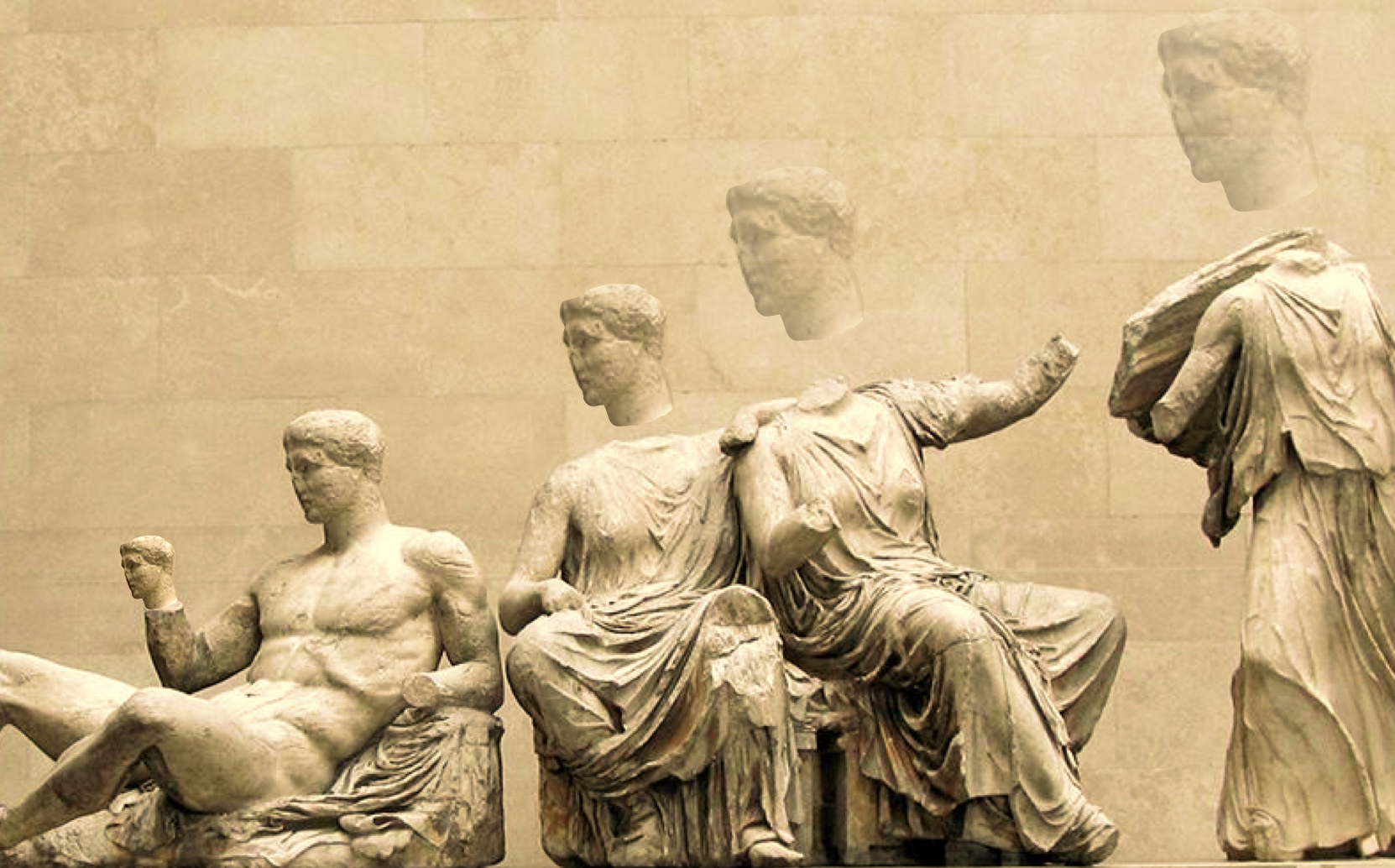The Deepest Chasm in our Political Landscape
The Rise of Ethical Cannibalism

We should have seen this coming!
The flagship publication of Hillsdale College, Imprimis, which the College claims has a readership of more than six million, has recently published an article by the current enfant terrible of conservatism, Christopher F. Rufo, entitled “Inside the Transgender Empire.” The article explores the question of how transgenderism became so successful, and especially how the transgendered and Drag Queens became so celebrated among the ruling elites. Rufo rehearses all the horrors that have been visited upon American society and politics by the transgender movement and, I believe, he thinks his analysis of that danger goes to the radical source of that danger.
It does not! His analysis is not radical enough; it ignores the fact that the triumph of the transgender movement will inevitably lead to cannibalism. If you think that statement is too harsh for polite readers, read on.
The Los Angeles Times has published not one but two rave reviews of a movie celebrating cannibalism. Glenn Whipp, reporting from the Telluride Film Festival in September of 2022, describes Bones and All as “a tender story of young love” starring two “fine young cannibals trying to negotiate their natures and doing their best to ethically source their next meal.” What makes the cannibalism ethical, one supposes, is that the movie’s two cannibal stars are “people on society’s margins” who are stigmatized and shunned. Whipp seems to think that this brings ethical issues into the equation. In this clash, the ethical conundrum seems to be a choice between the right to life of the victims of cannibals, and the cannibals’ desire to pursue the food of their choice; who is the real victim?—those who are eaten by the cannibals or the cannibals whose way of life is considered unacceptable and stigmatized by society?
The second review, by Mark Olsen describes the film as “part horror film, part coming-of age tale, part romance.” He explains part of the movie’s plot as “two young ‘eaters’” “attempting “to stake out a semblance of normalcy and stability.” But, of course, it is difficult to imagine normalcy and stability developing among cannibals, and the reviewer observes that “the film is driven by a sadness, a mournful, haunted quality that covers even moments of freedom and joy.” The “freedom and joy” presumably breaks forth from the mournful gloom when then cannibals have stalked and succeeded in consuming their next meal.
We should have been prepared for the praise of the morality of cannibalism. I, for one, have been prepared for it for years. Friends, casual acquaintances, and bystanders have endured my discussions, sometimes polemics and even screeds, on how the result of progressive thought would ultimately be cannibalism. All those many years ago, it sounded utterly fantastic, but when I first heard the claims from anthropologists and other social scientists that opposition to cannibalism was merely western food aversion—in other words, an irrational prejudice—I knew that cannibalism was coming.
Liberation movements from the very beginning sought to free human beings from the restraints of nature and of nature’s god. Marx, of course, wasn’t the first, but his simple account is the easiest to explain. We create God to put moral restraints upon ourselves. Creating this non-human or divine source gives the restrains greater authority. But once we realize that God is only a myth or creation, it loses its authoritative power as a tool of oppression for the ruling classes. Once the proletariat seizes power in the inevitable dialectic of history, God, will be exposed as a fraud foisted on the people and can be dismissed. A new, secular morality will be designed to support the party of the working class. Today’s secular religion of the “woke” resembles that party, but it no longer has its roots in the working class, even as it demands the same loyalty and metes out the same harsh discipline as Marxist-Leninism.
Feminism was a successful liberation movement. Once feminism realized that there are no significant or relevant natural differences between the sexes, it became obvious that there were no grounds in law or politics for any inequality. Elimination of classifications by sex for civil rights issues—equal opportunity in employment, voting rights, etc.—were certainly warranted and just, but once the natural distinction between the sexes was deemed irrelevant for civil rights, then it was almost inevitable (and here I paint with a broad brush) that it became irrelevant for all purposes.
Nonbinary ideology was the result of feminism, though I very much doubt it was ever its intention. In a non-binary world, men can have babies, and in the universe of political correctness the punishment for denying this form of irrationality is swift and severe. Just ask teachers and professors who refused to leave the world of reason and science. They have experienced the peculiar wrath that the nonbinary world can generate. Because it is so irrational in its insistence that commonsense be ignored their wrath defies description.
Liberation theology indulged the same conclusions as the Marxist-Leninists. Once it is realized that God is dead, then morality was “humanized,” or in the more radical vision of Nietzsche, once God is dead, everything is permitted, and nothing is forbidden. Homosexual liberation denies that the natural distinction between male and female is relevant for sexual congress; the gay rights movement denied nature and natural distinctions. Gays insisted that their lifestyle should be publicly accepted because gays lived and acted in a manner that demonstrated their belief that nature provided no standards for morality, and their demand to be seen and accepted in public was essential to the affirmation of this belief. In fact, the demand was not that the gay lifestyle be accepted, but that it should be recognized as superior because it was liberated from the constraints that restrained the lifestyles of heterosexuals whose sexual freedom was restrained because of their belief that nature imposed limitations. Bisexuals and polysexuals and other kinds of sexuals were still—well, “sexuals,” i.e., in the same situation.
Transgenders, however, made a much more serious commitment to their denial of nature and therefore made a greater claim to moral superiority. They resorted to technology, a much more radical and irreversible commitment to their attempt to extinguish nature altogether. Transgenderism seeks the ultimate victory of technology over nature—the goal of science at its very origins, “the conquest of nature.” You can ask my friends (if I have any left) whether I predicted that transgenders would soon outrank gays in the new morality, a morality which judges based on who is most committed to the denial of the relevance of nature and all standards of nature.
But has transgenderism succeeded? Has it driven out nature with its virtual pitchfork of technology? Or is it merely deluding itself? Isn’t cannibalism a greater denial of human nature? Doesn’t cannibalism outrank transgenderism in the new morality? Cannibalism is not just the technological transformation of nature. The limitation of transgenderism is its reliance on technology; it allows transformed nature to survive. Cannibalism, in radical contrast, doesn’t recognize human nature or nature in any form. It is the ultimate liberation—it is free from any restraints because it doesn’t recognize nature or nature’s God.
One thinks here of the state of nature, where, in the famous formulation of Thomas Hobbes, life, is nasty, brutish, and short. In other words, the state of nature is inhuman, inhabited by cannibals and virtual cannibals. Reason, the highest faculty of the human soul, is required for civilization to bring an end to the state of nature which is always looming in the backdrop of civilization. The state of nature and cannibalism are the antithesis of civilization and reason. Reason is the foundation of the West. It is Western reason that created science and technology and those creations have done much for the relief of the human estate, alleviating poverty and disease among other things.
But science, of course, cannot address the most important human and political questions—what is the good? what is justice? What is the best regime? What is moral?—those questions that animated classical political philosophy. These became known as value questions and were said to be beyond the competence of science, which rested on the fact-value distinction, a distinction that was crucial to the progress of science. Its power over nature—its conquest of nature—would not have occurred without the distinction between facts and values. Mathematical physics, the heart of modern science, would not have developed without the fact-value distinction. But modern science without a ground in morality inevitably led to complications of great magnitude: power over nature without any sense of how to use that power justly or for the good. It is power without purpose. It was truly a bargain with the devil. It eventually led to what a prominent political philosopher described as “the self-destruction of reason.”
Authoritative liberal opinion today holds that reason can tell us nothing about value questions; reason cannot decide between competing values or competing value systems because modernity has led us to believe that reason itself is merely the epiphenomenon of sub-rational forces, either one’s irrational passions, or one’s race, one’s ethnicity, one’s sex, one’s trans sex, or an host of other irrational factors. Reason is the basis of civilization, constitutionalism, and the rule of law; cannibalism is the antithesis of civilization, no matter how much individual cannibals might love one another (utterly impossible no matter how you define “love”) or how civilized people may marginalize them. Should Western Civilization adopt and protect cannibalism out of deference to those uncivilized (did I actually write that?) parts of the world that remain in the state of nature and practice cannibalism? We used to call this the Third World—sometimes the uncivilized world. The celebration of cannibalism forces us to give up the view that all cultures are equal and we must continue to believe that the West stands for white supremacy, exploitation, colonialism, and practically every other evil. If we can’t say that cannibalism is evil and uncivilized and should be condemned then it is not Western reason talking, but reason simpliciter. If we are so unreasonable to believe that cannibals are a “marginalized people” and should receive preference as a class, then the West will vanish, not with a bang, but with an inaudible whimper.
To think that it all started when the most advanced progressives were worried about “western food aversion.” Did this not mean that the non-western world, parts of which practiced cannibalism, often for religious or sacred purposes, was culturally inferior to the West? Shouldn’t we be more accepting of the cultures of others? Shouldn’t we be more open-minded? Should we not only respect other cultures but show the ultimate form of respect by imitating their culture? Shouldn’t we create a “diversity lottery” for cannibal immigrants? Isn’t diversity our strength? I am sure we will be better off (and stronger!) for it. Would it be unethical for me to become a vegetarian? This is a moral conundrum that may be the death of me!
The American Mind presents a range of perspectives. Views are writers’ own and do not necessarily represent those of The Claremont Institute.
The American Mind is a publication of the Claremont Institute, a non-profit 501(c)(3) organization, dedicated to restoring the principles of the American Founding to their rightful, preeminent authority in our national life. Interested in supporting our work? Gifts to the Claremont Institute are tax-deductible.
Pornographic technology has turned sensory overload into sensory degradation.
The pandemic inverted the normal meaning of generational sacrifice.



